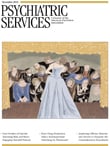The Farmer's Daughter
In The Farmer's Daughter, Jim Harrison, prolific author, master storyteller, poet, and foodie, uses the format of three novellas for the sixth time (he first used it in Legends of the Fall in 1979). This format, which is not often used by contemporary writers, practically begs the reader to compare the three stories. The first story—and the one that gives the book its name—is an easy winner and by far my favorite. It is a coming-of-age story about adolescent Sarah, a beautiful, home-schooled, horse-loving, hunting, tracking, piano-playing Lolita. Her family moves from Ohio to rural Montana, whereupon her rigid, evangelical mother ups and leaves Sarah and Sarah's Vietnam veteran, emotionally unavailable father. (Born and raised in Montana myself, I especially loved the story's sense of place—Big Sky Country—and its emphasis on the landscape's contribution to Sarah's emerging identity. Harrison's description of Montana is so vivid and accurate that it transported me right to the back of my childhood mustang—Old Blu.)
Sarah approaches her life with great mindfulness, joining a 4-H group in order to increase her same-age contacts and a Bible club to fool the older boys into leaving her alone. But her life plan is derailed when a nasty rodeo cowboy drugs and then rapes her. Sarah's escape fantasy of killing the cowboy finds traction in her methodical approach to her life. Harrison's writing is, as ever, raw, terse, and a little crude. But even with all of his skills, Sarah is never quite believable. She is equal parts healthy, functional, and very damaged, and the mix just never quite gels.
The second story, "Brown Dog Redux," brings back a character well known to Harrison fans. Brown Dog, who is famous for his obsession with food, including Spam and onion sandwiches, was first introduced in a 1990 story and has reappeared many times since, including in a story that introduced his stepdaughter Berry, a nearly teenaged girl with fetal alcohol syndrome who does not speak any human language (but is fluent in animal languages). Brown Dog is intent on finding the right environment for prepubescent Berry, but her story is lost in the descriptions of Brown Dog's preoccupation with alcohol and sex, including his musings on the nuances of being either half drunk or fully drunk. This story is vintage Harrison, with amusing riffs, such as "When she ordered her double-decaf soy-milk latte with a pinch of sassafras pollen, B.D. momentarily forgot the glowering husband thinking that he would get stuck with the bill which would equal a good bottle of whiskey." It is hard to dislike Brown Dog, although this story nearly got me there.
The last story, "The Games of the Night," continues the themes of sex and adolescence but throws in a twist in which the 12-year-old hero is transformed into a lust-filled werewolf after being bitten by a hummingbird (and then a wolf pup) in Mexico. He grows up to be a Northwestern University-educated, tenor-loving intellectual, but he is punished for his full-moon, murderous, super-sexed, flesh-eating activities with terrible symptoms of gout. No, I'm not kidding.
I looked for the link among the stories and came up with "offbeat." But seriously, I'm not able to do this complicated little trio of stories the justice they deserve. For a really compelling perspective, check out the letter to President Obama recommending Harrison to his Cabinet on this Chicago Tribune Web site: featuresblogs.chicagotribune.com/printers-row/2009/12/review-the-farmers-daughter-by-jim-harrison.html .



